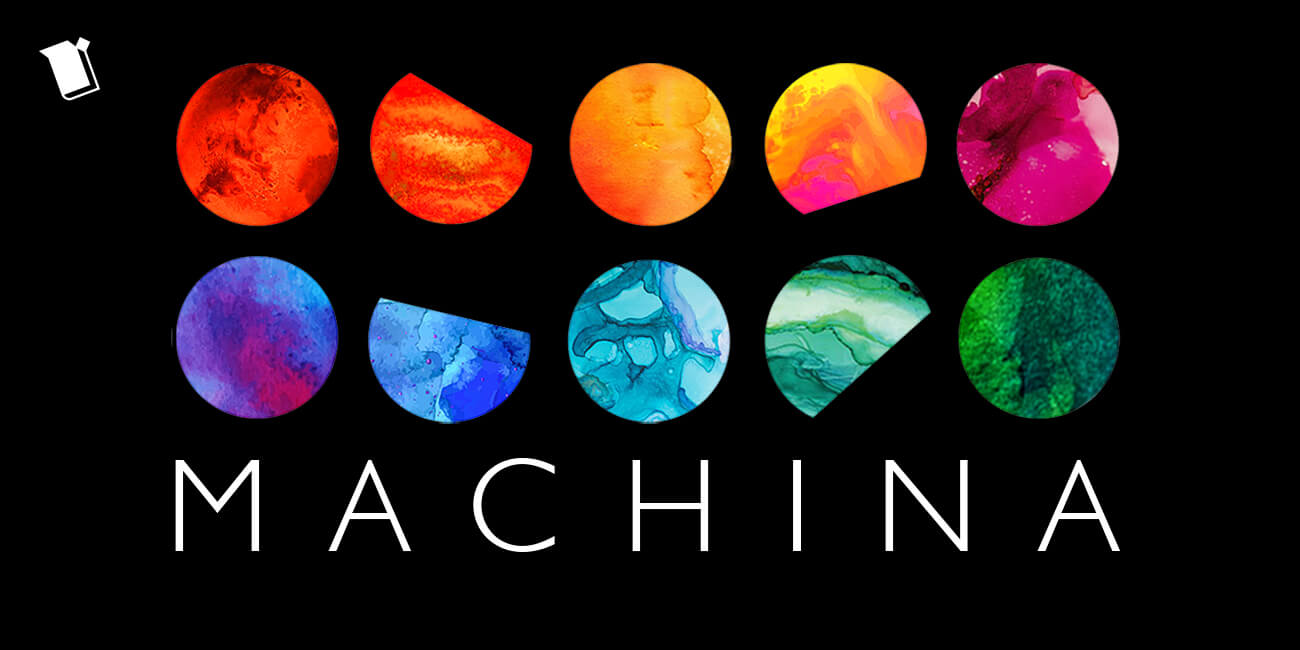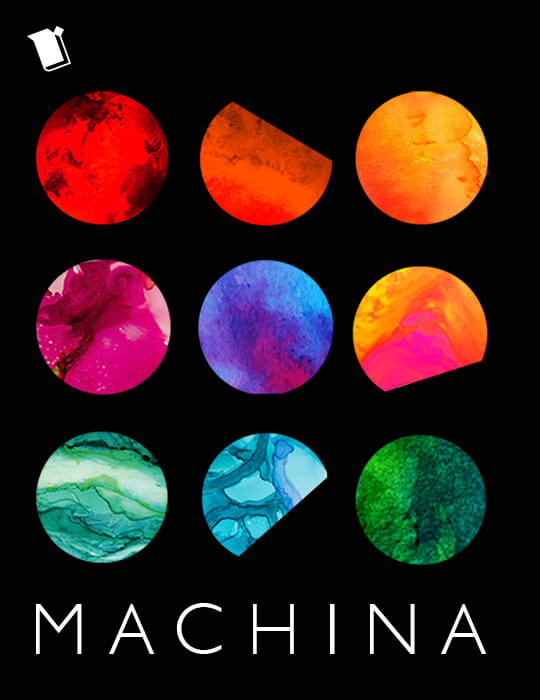Machina takes place in a near(ish) future, in which it has become increasingly clear that humans cannot stay on Earth longterm with any expectation of survival. That’s why rival tech companies are competing for a choice Government contract to send their AIs to Mars: to begin terraforming for humans to eventually migrate. Two rival companies in particular, with competing ideologies of AI and bad history between their visionary leaders, employ every tactic they can think of to get ahead of each other in the government trials, as interpersonal clashes and disturbing decision-making on the part of their AIs bubble to the surface.
Machina
Curtis Chen, Malka Older, Martha Wells, and Fran Wilde
Serial Box
Episodes released weekly beginning January 29, 2020
And if that synopsis of the premise grabs you, Machina definitely delivers all the corporate espionage, smarmy tech giants, ethical concerns and conflicted loyalties you could desire, in an engaging, fast-paced way.
Machina is being released by Serial Box, which means that all its authors—Fran Wilde, Curtis Chen, and Malka Older (and Martha Wells contributing a guest episode of a key pivot point)—worked together in a writers’ room environment, taking turns writing individual “episodes” that are released once a week; text and audio simultaneously. The first two-part episode is free! And as might be expected, that first episode by project creator Fran Wilde feels a lot like a pilot of a television show. It’s heavy-handed, but succeeds in introducing the personalities of the main characters and conveying the urgency of the Mars AI project.
Machina reminds me of Ninth Step Station, another Serial Box series with many of the same contributors. Both series are speculative fiction in the most literal sense of a “what if?” scenario. Each presents a near future that is post-disaster, and are driven by the questions: given this situation, how would people behave? What would their lives look like? What would they prioritize? In Machina, these questions are answered in a heartening way: likeable people will find ways for their lives to be fulfilling, and unlikeable people who are bad colleagues might still help our species survive. I hope that’s true.
Normally, I’m not particularly interested in watching people code, or in stories of corporate intrigue. In Machina, however, while the characters are almost all programmers and the corporate rivalry is cutthroat, the well-drawn characters and the structure of the plot kept me very interested.
The story opens with four programming undergrads and a TA, fleeing a disaster in LA into the desert. Over the years that follow, they form a tech company, clash personalities, and split into two companies and a neighborhood bar that serves as a neutral zone for after work hours. The coders who found the companies and who come later to work for them are diverse along ethnic, race and gender lines, which is explicitly addressed in the text.
With some flashbacks, the bulk of the story structure is the timeline of the three government trials in which rival tech companies compete for the honor and prestige of having their AI be selected to lead the terraforming of Mars. Like a sports movie, the formalized series of challenges imposes a structure that is easy to follow and clearly motivates the characters to react to their performance.
Right before reading Machina, I finished the YA novel, Catfishing on CatNet. That means Machina was the second book in a row I read that: is about AI; has a main character named Steph; has a non-binary character named Cam; has a dangerously charming sociopathic white man programmer; and features (this is possibly a teensy spoiler?) anonymous “help” delivered electronically as a plot point. There’s apparently a zeitgeist and I, for one, intend to befriend as many Stephs and Cams as possible to prepare for the future.
And finally, since Serial Box calls its books “seasons” I think it extremely pertinent to note that Machina has a satisfying ending. (Unlike the first season of Ninth Step Station which ends on a cliffhanger, with major characters about to make major decisions.) There are certainly some unsolved mysteries in Machina, and I’d welcome a second season, but the major plot arc and character arcs conclude and that’s very welcome. Machina is both gripping and satisfying.


